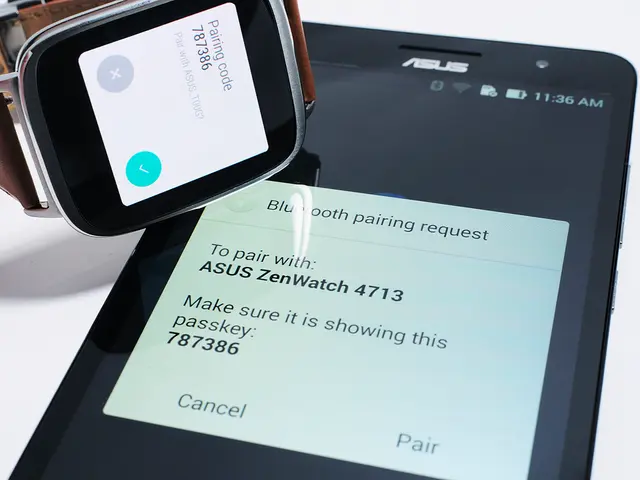Beware of the upcoming smart eyewear!
In the world of wearable technology, Ray-Ban's collaboration with Meta on their smart glasses is a significant step forward. However, this innovation has sparked concerns about privacy and data security.
One of the main issues is the processing of sensitive personal data, including that of third parties, without explicit consent. This raises questions about the transparency of data processing, particularly in bright sunlight or backlight. The BfDI, the German Federal Commissioner for Data Protection and Freedom of Information, has expressed concerns in this regard.
The smart glasses, equipped with two cameras and five microphones, enable the wearer to capture photos, short videos, and even listen to music. But here's where the privacy concerns intensify. Unlike dummy cameras, these glasses are not immediately recognizable as a camera to an objective observer. This could potentially lead to a surveillance pressure, especially when the glasses are in standby mode.
Moreover, there's no indicator for pure voice recordings, which are always active and recording in the background. This means that any conversation within the vicinity of the glasses could potentially be recorded without the knowledge of the participants.
Another controversy lies in the fact that all stored data is transmitted to the manufacturers for evaluation using AI and potential use in AI training. Data from the smart glasses is stored in the Meta Cloud and may be analyzed by AI systems. Any audio data must be manually deleted from the Meta AI app on a user's mobile device.
The smart glasses also integrate the Meta AI assistant, which allows users to take notes, translate text, and scan QR codes, all activated by voice command ("Hey Meta"). However, this constant listening and analyzing of surroundings could be seen as a strong invasion of personality rights, especially of outsiders.
Local storage is not an option for the smart glasses, and the voice recording cannot be turned off. This has led to criticism from data protection advocates, who argue that the data processing associated with these smart glasses poses a significant risk to privacy and data security.
Despite these concerns, the smart glasses offer a host of convenient features for users. They enable hands-free interaction with technology, making daily tasks more efficient. However, it is crucial for users to be aware of the potential privacy implications and exercise caution when using these devices.
As with any new technology, the balance between convenience and privacy is a delicate one. It is essential for manufacturers to address these concerns and ensure that user privacy is protected while still offering innovative and useful products.
Read also:
- Organic Mattress Essentia Stratami: Optimal Comfort Pick for a Healthy Sleep Experience
- Fixing a crucial aspect in Apple's Studio Display stands to improve the experience for both gamers and creative professionals alike.
- Practical Electrical Suggestions for Environmentally Mindful Garden Enthusiasts
- New addition to the Australian Mercedes-Benz G-Class lineup: 2025 G 450 d, powered by diesel engine








